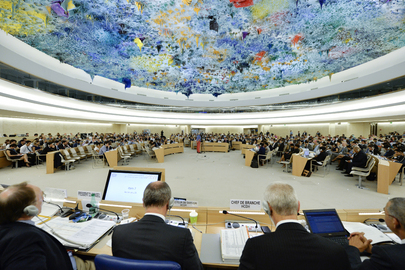UNHRC expands mandate of South Sudan human rights monitoring body
March 24, 2017 (JUBA) – The United Nations Human Rights Council (UNHRC) Friday expanded the mandate of a three-member monitoring and advisory body on transitional justice and accountability issues in South Sudan and ordered to provide its findings also to the African Union hybrid court.

The three-member body had initially to provide guidance to the Government of South Sudan on transitional justice, accountability and reconciliation issues. Also, it has to engage with international and regional mechanisms to promote accountability for human rights violations and abuses.
However, the human rights body on Friday decided to extend its mandate for one year and expand the mandate of the Commission to make its findings available to the African Union hybrid court for South Sudan, once it is established.
It also decided that it has to “determine and report the facts and circumstances of, collect and preserve evidence of, and clarify responsibility for alleged gross violations and abuses of human rights and related crimes, including sexual and gender-based violence and ethnic violence, with a view to ending impunity and providing accountability.”
Since last year, UN officials have accused the South Sudanese government troops of committing war crimes and atrocities against civilians caught up in the country’s civil war.
South Sudanese government has denied the accusations, but aid workers and UN officials continue to receive counts of murder, torture and rape from refugees and IDPs.
In a short statement issued on Friday Human Right Watch welcomed the decision and described it as a “positive move”.
“The council has taken a significant step toward justice for deliberate killings, mass rape, torture, and other abuses in South Sudan by authorising the commission to collect and preserve evidence of the crimes,” said Laila Matar, the UN advocate at Human Rights Watch.
Matar further said the expansion of mandate “can bolster prosecutions by the proposed African Union hybrid court, which should be urgently established”.
The situation in South Sudan will be discussed at the council in September, and the commission will present a comprehensive report to the council in March 2018.
The Commission on Human Rights in South Sudan is composed of Ms Yasmin Sooka (South Africa), Mr Kenneth R. Scott (USA) and Mr Godfrey M. Musila (Kenya). Sooka serves as Chair of the commission.
(ST)
